Political Scientists Explained Divergence in Positions of Toqayev and the CSTO Secretary General
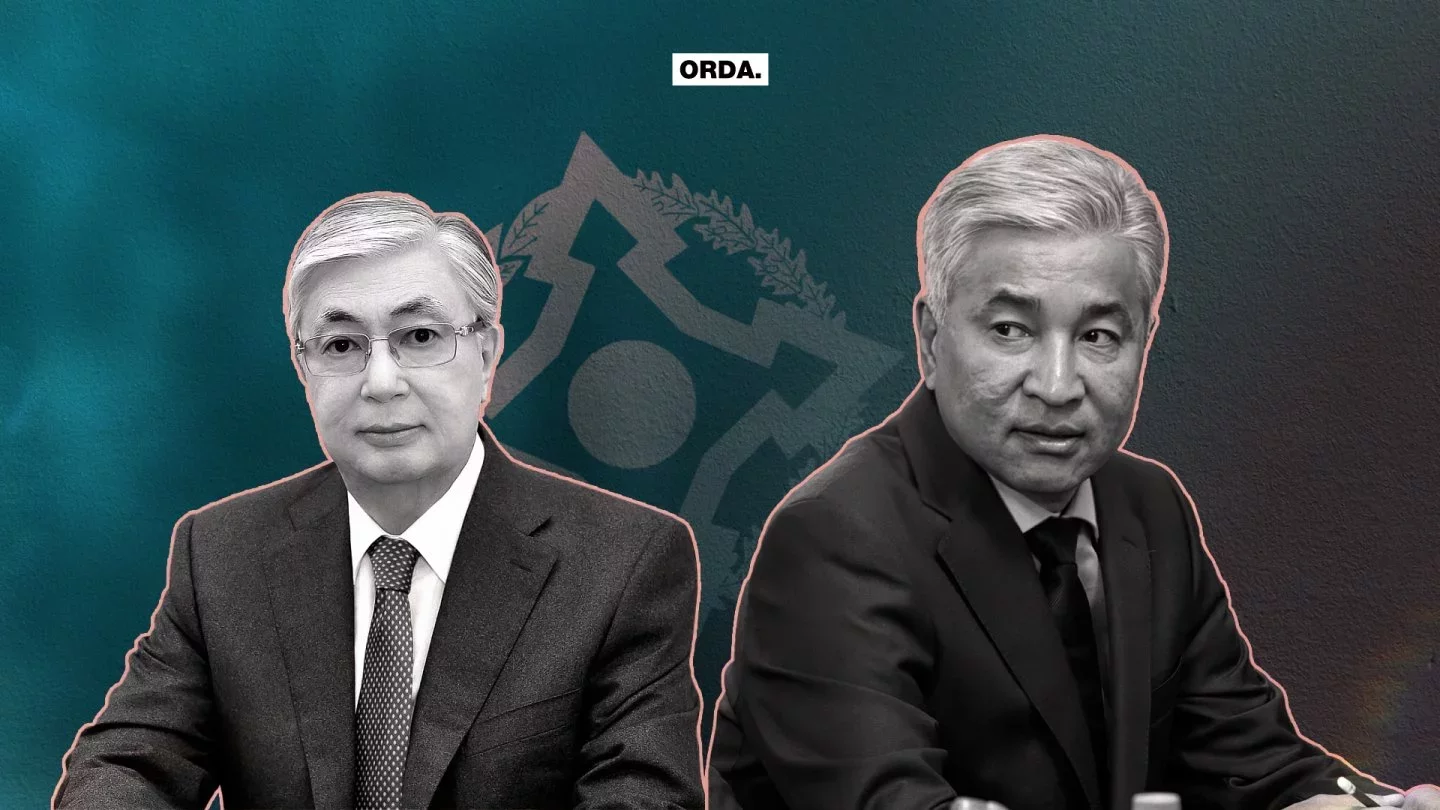 Covercollage: Orda.kz
Covercollage: Orda.kz
At the CSTO summit in Minsk, President Qasym-Jomart Toqayev urged not to exaggerate the degree of threats faced by the CSTO member countries. These words seemingly served as a response to Imangali Tasmagambetov’s statement. He, on the contrary, spoke about the intensification of confrontation at the global and regional level. Orda.kz spoke to experts about why their positions differ.
The deterioration of the international political situation is accompanied by a decreasing level of manageability of the international relations’ system. Imangali Tasmagambetov expressed this opinion at a meeting of the secretaries of the Security Councils of the CIS member states.
The consequence is the emergence of crisis situations at the intersection of the geopolitical and geo-economic interests of key players. The situation is aggravated by the use of hybrid technologies, which makes it much more difficult to recognize threats and establish facts of violation of national sovereignty, Imangali Tasmagambetov said.
On the other hand, Toqayev’s opinion is that it is certainly important to take into account the threats and challenges of modern realities when deciding on the tactics and strategy of the Organization's activities. But there is no need to constantly talk about them, even if they do exist.
In the end, threats have always existed. This is the essence of the international community. Frequent statements on this topic give rise to the illusion that we are afraid of someone. Such statements may also receive and, it seems, are already receiving a completely incorrect interpretation, Toqayev said at the summit in Minsk.
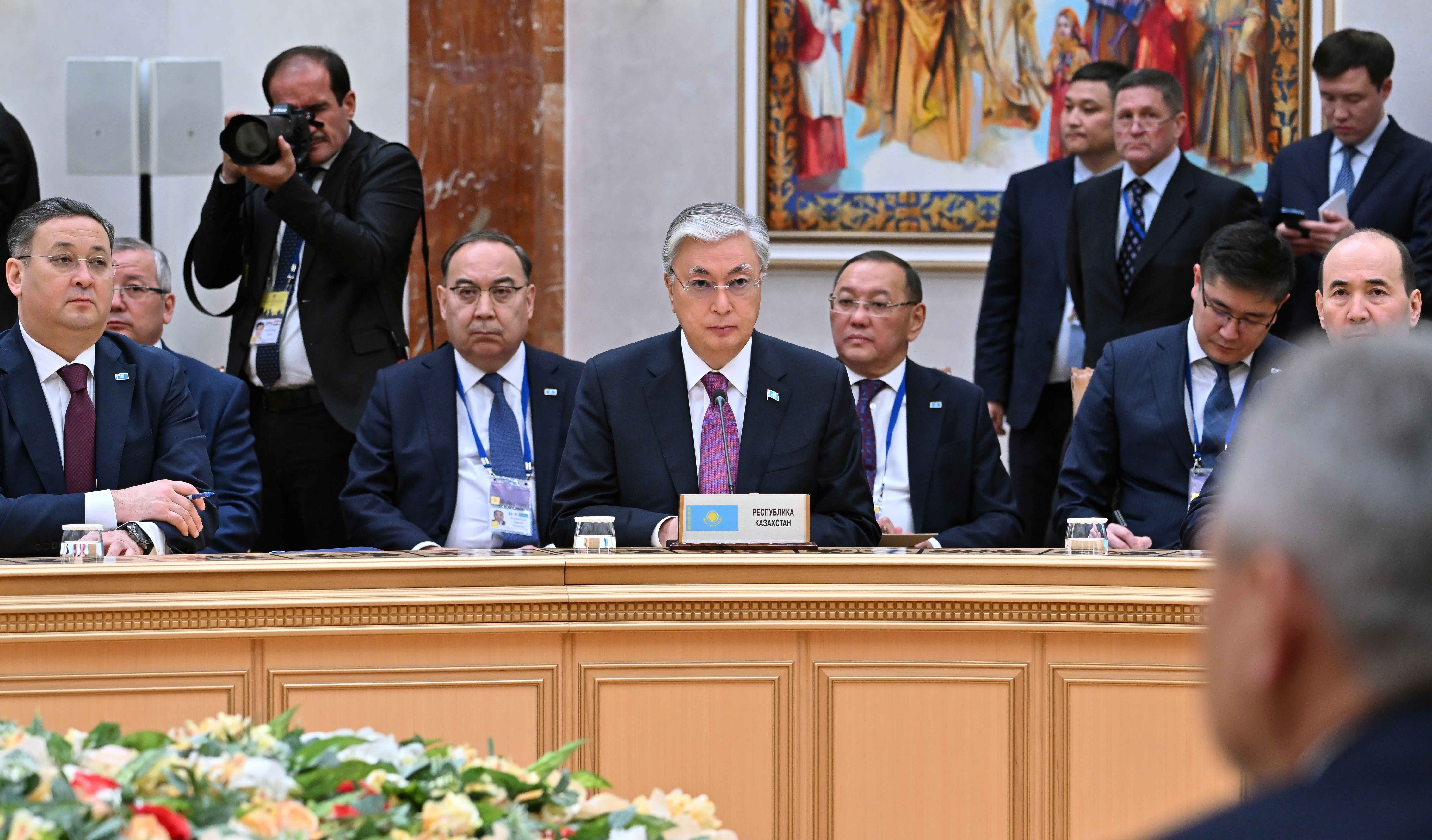
Signal to Putin?
According to political analyst Gaziz Abishev, Toqayev's statements should be regarded as a message to the organization’s members.
Tasmagambetov is in the collective subordination of the Council of Heads of State of the CSTO. And his speeches are coordinated with the security apparatus of these states, including Russia and Belarus. As a Kazakh representative, he is forced to implement the ideas of the leaders of these countries, just as the NATO Secretary General pays great attention to the position of the United States. Namely, the alarmist position is dictated by Russia and Belarus, Abishev argues.
The reasons for this position of the Russian Federation and the Republic of Belarus, according to the expert, are superficial. Russia is waging a war with Ukraine. The justification for its beginning, as it happens, was an alleged threat to the country’s security. And Abishev calls Belarus an appendage of Moscow because Alexander Lukashenko has been under sanctions since 2020.
Toqayev articulated this not only and not so much as to Tasmagambetov, who has more of a coordinating and representative function, as to his CSTO colleagues Lukashenko and Putin, Abishev believes.
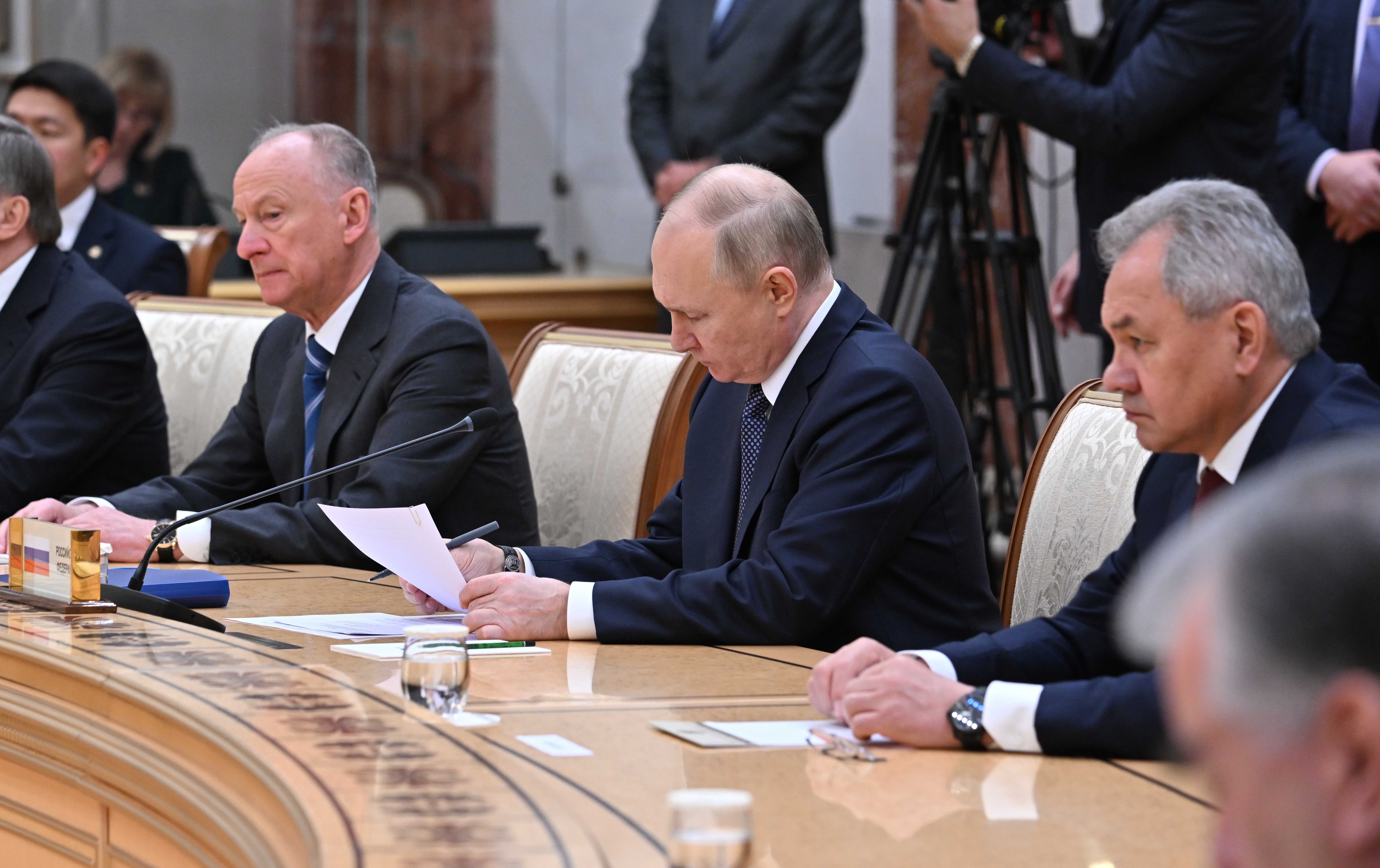
Political scientist Daniyar Ashimbayev agrees that Imangali Tasmagambetov expressed the organization’s collective position. He also sees one of the reasons for talking about threats as an attempt to give weight to the CSTO.
It is clear that any organization wants to be more significant than it really is. Because the CSTO has existed for many years, but its only vivid application was in January 2022 in Kazakhstan, the political scientist says.
He nonetheless does not deny the existence of problems within the Organization, but they are more threats of a permanent nature, which Toqayev acknowledged in his speech.
Toqayev’s rhetoric, according to Ashimbayev, is connected with the traditional peacemaking position of our country.
Kazakhstan, as a country that is not in conflict with anyone, does not want the CSTO to be an instrument of global confrontation. Qasym Jomart-Toqayev would not want the organization to look like a military-political union that is directed against someone, the expert notes.
Trapped
Armenia’s absence at the summit in Minsk is also noteworthy. Many have suggested that Armenia may be preparing to leave the CSTO. But Imangali Tasmagambetov has said otherwise.
There is no talk that the Republic of Armenia is withdrawing from the CSTO at the moment. The work of the Armenian side in the organization continues. Its multilateral contacts within the framework of the CSTO are in working mode, the Secretary General of the Organization said.
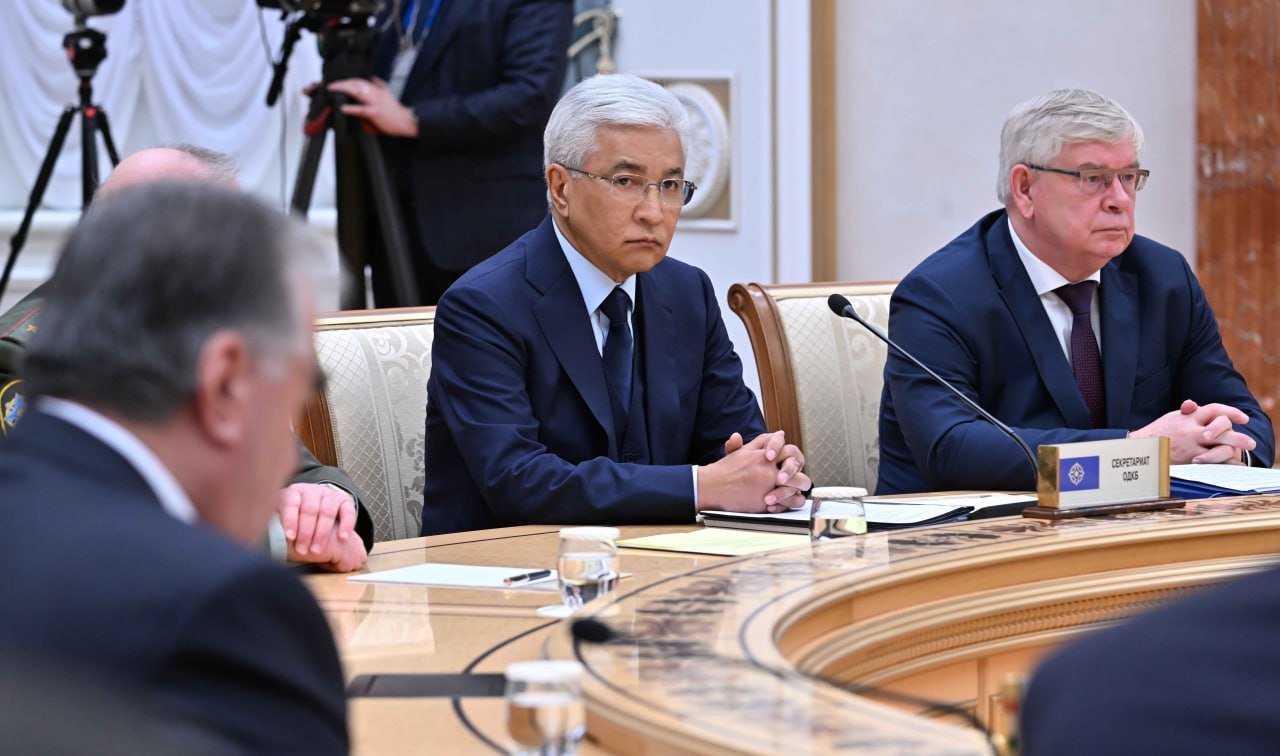
Orda’s interlocutors also dismiss the risks of Armenia's withdrawal from the CSTO. Gaziz Abishev believes that the republic is in a geographical trap.
What alternatives does Armenia have? Iran, which is under sanctions, and Türkiye, with which it has a historical conflict, which can be stopped only if Armenia renounces claims regarding the Armenian Genocide. But I don't think the Armenians are ready to do this, the expert said.
Armenia is thereby forced to interact with the Eurasian space represented by the EAEU and the CSTO, says Abishev.
I'm not defending these projects as such, it's just the situation Armenia is in. If they decide to leave the EAEU and the CSTO, who will provide their security guarantees? Because if Türkiye and Azerbaijan decide to enter the internationally recognized territory of Armenia, the CSTO countries will defend it, initially with diplomatic methods. It seems to me that Russia, Kazakhstan and other CSTO countries are one of the notable factors why Azerbaijan does not enter the territory of Armenia.
The political scientist does not see an alternative breakthrough project for cooperation with Europe. According to Abishev, in the event of Armenia sharply pivoting towards European structures, Russia may apply sanctions, i.g., impose an economic embargo.
Daniyar Ashimbayev also says that Armenia is closely connected with Russia. According to him, an anti-Russian course for this country is a dead end.
For a long time Armenia has held on to the myth of military victories. But these were the victories of the 1990s. And the defeat of 2020 and 2023 changed the situation dramatically. It became clear that you need to negotiate with Azerbaijan yourself, and not rely on Russian troops. The loss of Karabakh is very painful for Armenia. Pashinyan always has someone to blame in such a situation. After all, the man is a populist. But his attempts to blame Russia for the defeat and enlist the support of the West may make sense, but they fit very poorly into the economic model of Armenia, the expert emphasizes.
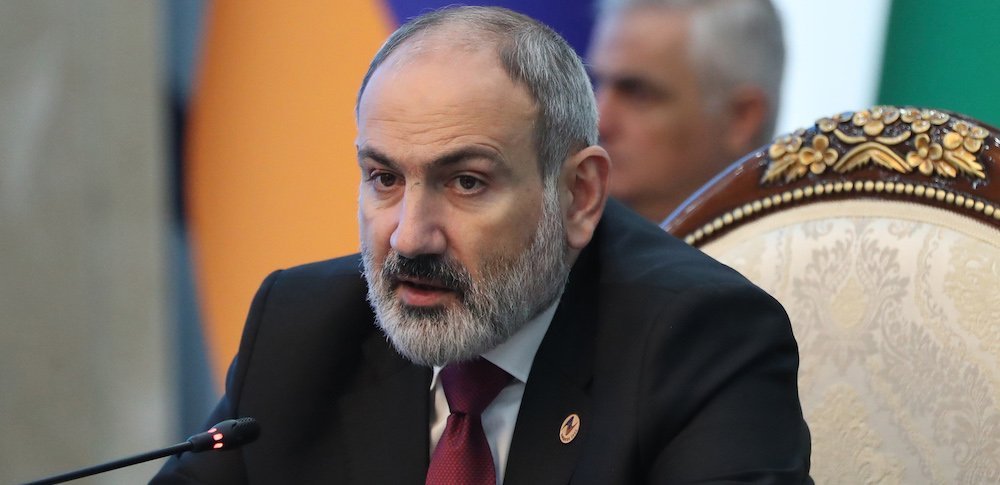
Cutting off relations with Russia may lead to the end of Pashinyan's own rule. Thus, it should not be surprising that the Armenian leader may say one thing in public and another behind closed doors.
Ashimbayev cited Georgia as an example of balanced relations with the West and Russia. Georgia continues to work closely with the West, simultaneously benefiting from relations with Moscow.
Georgia is acting pro-Georgian, Kazakhstan is acting pro-Kazakh, Russia is acting in its own interests. But it is very difficult for me to say in whose interests Pashinyan is acting. He was able to survive several political and military defeats, but nevertheless retains power and enjoys the support of the population. Perhaps his ability to shift responsibility for his defeats to others helps this. How long will it last?
Moscow, Minsk, and Astana are not going to break off relations with Yerevan. As Ashimbayev put it, they themselves are wondering how “Pashinyan’s running about" will end.
Original Author: Igor Ulitin
DISCLAIMER: This is a translated piece. The text has been modified, the content is the same. Please refer to the original article in Russian for accuracy.
Latest news
- Timur Kulibayev vs. New Kazakhstan: Oligarch Defends His Assets
- MP supported Imam's Statements About Kazakh Traditions
- Altyn Adam: How Filmmakers Quarreled Over Cartoon About Scythian Warrior
- "No Chance": Russian Deserters' Stories in Kazakhstan
- National Fund Earns As Much As It Spends
- What is Going on with FPL Head's Recent Appointment?
- Stati Case: Victory for Kazakhstan?
- Qataris to Spend $3.5 Billion on Construction of Plants in Kashagan
- Oil Quotas: a Blessing or a Curse for Kazakhstan?
- Plant in Kazakhstan: Swiss Investor Purchased, Legal Battle Follows
- Situation with Russian Securities in Kazakhstan Explained
- Uranium Mining Tax in Kazakhstan to Change Starting in 2025
- Chinese Oil Giant to Build Wind Farm in Kazakhstan
- Expert Explains Toqayev Greeting Xi Jinping in Particular Way
- Scandal around "Aria-Zhana Astana", Controlled by Satybaldy, Not Subsiding
- SCO Summit in Astana: What to Expect?
- Who Was Oppositionist Aidos Sadykov?
- KNB Agent Orik VS Financial Police Agent Sanych
- Nazarbayev's Relatives on Trial: Systemic Purge or Political Games?
- Fire in Greece: Luxury Yacht, Kazakhstani Oligarchs' Vacation Scandal

